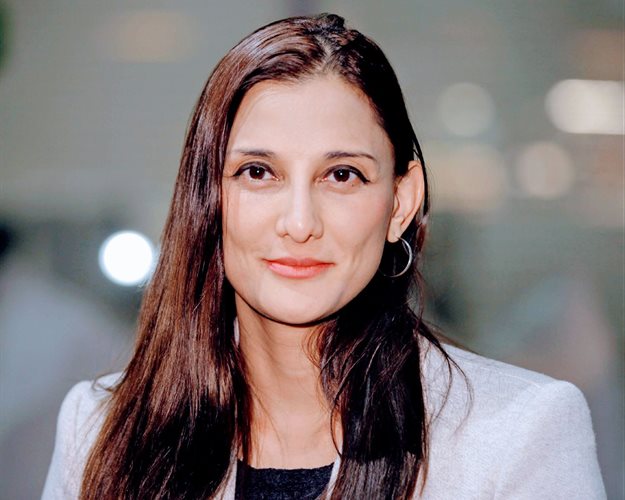Tashmia Ismail-Saville is CEO of the Youth Employment Service (YES), a joint initiative between business, government and labour, created to address the youth unemployment challenge in SA. The organisation provides paid 12-month employment through corporate sponsorships, creating much-needed work opportunities. Since inception, YES has generated over R1.4bn in youth salaries across 35,000 jobs.

Tashmia Ismail-Saville, CE, Youth Employment Service (YES)
We chatted to Ismail-Saville this #YouthMonth to find out more about how YES is advancing youth empowerment in SA, and how we can address some of our most significant challenges, in particular, the current Covid-19 crisis.
Tell us a bit about what YES does and its roots.
Tashmia Ismail-Saville: The Youth Employment Service (YES) has its roots in the CEO Initiative where a number of business leaders came together to tackle a series of challenges facing the SA economy, including the youth unemployment crisis.
After consultation with business, labour and government, it was decided that a B-BBEE incentive would be developed to reward businesses who create youth employment. The incentive is administered by the Department of Trade, Industry and Competition (DTIC) and allows businesses to move up either one or two levels on their B-BBEE scorecard.
Since the start of 2019, YES has created over 36,000 jobs across more than 1,020 corporates with a number organisations returning for second and third-year participation.
What makes you most passionate about the work you do at the foundation?
Ismail-Saville: Many South Africans simply can’t get that first break to give them work experience. It becomes a vicious cycle: You can’t a job without experience, you can’t get experience without a job.
If we can't break down this barrier, it becomes a never-ending cycle for these youth.
Ultimately, we want to see a South African future that works. When I hear stories of youth getting work opportunities and adding value to the organisation – and often becoming primary breadwinners – I know that the work that YES has done changes lives.
What are some of the major strides YES has made thus far in advancing youth empowerment in SA?
Ismail-Saville: YES has created over 36,000 jobs since the start of 2019, that translates into R1.4bn in youth salaries.
Importantly, YES jobs are not just situated in the economic hubs of Gauteng and the Western Cape, they are creating new and exciting jobs in places like Bushbuckridge and the Eastern Cape. It’s game-changing for these local economies to attract salaried employees who spend in their local economies.
One of the projects I am particularly proud of is our #Masks4All project – YES was impacted by the Covid-19 lockdown, but we did not rest on our laurels. We went out, connected with our networks, and collaborated to secure business partners to support seamstresses in emerging markets to make cloth face masks. We have injected R1m into township entrepreneurs at a time when the local economy came to a standstill.
We’re very proud to have secured work from the likes of Uber (a multi-national), to provide their drivers with free masks across South Africa. Uber’s relentless focus on safety and YES’s #Masks4All commitment, to protect vulnerable communities, has led to the formation of this key partnership. Heeding the call to #MaskUp and ensuring that all drivers are well protected as they embark on their daily trips is at the core of what this initiative stands for.
We have also partnered with Exemplar (a JSE-listed corporate), and have most recently dispatched our first export order to Belgium. Think about how amazing that is: township seamstresses in South Africa are able to participate in global supply chains!
Andrew van Zyl 17 Jun 2020
What are some of the most significant challenges for South Africa's youth? How do you believe we can overcome them?
Ismail-Saville: The first and most obvious one is the lack of work experience – until we can get them the chance to get some experience and work hardening, it is impossible to realise their actual potential.
The second one is social mobility: Youth may have skills but can’t get to and from interviews or to work on a daily basis. This spatial inequality locks them out of the economy.
This is part of the role that YES plays – we get them that experience, our YES Hub and Implementation Partner models try to create new jobs in communities. We need to work with all stakeholders, including business, labour and government, to create a future that works.
How is YES innovating in the face of the Covid-19 crisis in SA?
Ismail-Saville: We have touched on our #Masks4All project which has provided a desperately needed injection of over R1m into township businesses.
We have also used the YES smartphones to deliver educational content and even a Covid-19 module to help develop these youth and make them more aware of the importance of things like handwashing and social distancing.
SMMEs are particularly hard hit by the lockdown. Post-Covid changes will result in permanent shifts in how commerce and trade work. Many smaller businesses are not geared to trade digitally or expose consumers to their products. YES has given a pilot group of disadvantaged youth the skills to become digitally equipped for the future and we are now ramping this up. Fully fledged e-commerce platforms with payment gateways will be created and launched to assist 450 small businesses to continue their operations electronically, also exposing them to a whole new market that can accelerate their growth.
All of this is with the aim of creating jobs for local youth, even if these are gig jobs and not our YES 12-month quality work experiences.
How can Africa best take advantage of its youth dividend to uplift the continent?
Ismail-Saville: I truly believe that South Africans are problem-solvers. We have the ability develop solutions that are geared toward a young population and the reality is that Africa is one of the last unexploited frontier markets.
A young, innovative population can be a breeding ground for success.
What to you is the significance of Youth Month in 2020?
Ismail-Saville: The Covid-19 pandemic has given us a chance to reimagine our economy. Traditional players have been disrupted and while it has had a negative impact on the workforce, we can use this as a time to imagine and ignite a different future. While we celebrate youth every day, now more than ever, saying YES this Youth Month matters to create a future that works.
Words you live by?
Ismail-Saville: “A future that works.”









































